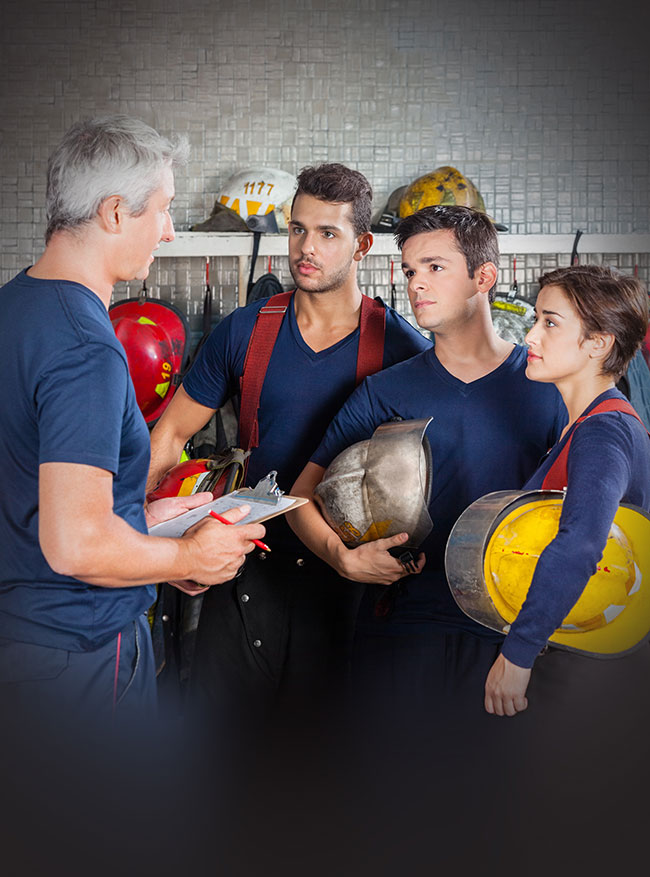
Front Seat: Fixing small problems helps achieve big goals
By Jason Clark
Features You can learn a lot about how your crew operates by spending an extra five or ten minutes talking to a new firefighter or the entire team when back at the station after a call.
You can learn a lot about how your crew operates by spending an extra five or ten minutes talking to a new firefighter or the entire team when back at the station after a call. With another year in the books and a new year upon us, many people take the time to reflect on resolutions and how we can better ourselves. Many resolutions made are big picture goals, such as losing a few pounds or maybe making a career change. These can be overwhelming when you start to look at how to accomplish the resolution. We start to think of the obstacles and tend to focus on the things that can keep us from accomplishing our goals.
Most great firefighters are making resolutions not just every year, but after every training and more importantly, after every call they respond to. When I first became a probationary firefighter, I made mistakes, and being a company officer now, I still make mistakes that I must try and learn from. I may or may not have once idled my pump down at a fire prevention open house and walked away, not realizing I left the truck monitor open. (The truck and the station floor got cleaned well that day in front of a crowd of citizens.)
One of the resolutions I’ve made as an officer is to get my crews to perform better. I am not saying they have been performing poorly, but we have added some new probationary firefighters to the roster and they are limited in skill sets and experience. Not only am I working with a newer generation of firefighters now, but so is the entire team. We need to remember we all started at this point and we didn’t magically hit the station floor with the knowledge needed to perform.
Time and again, I have said that the fire service has many parts, and all those moving parts means more time and maintenance needs to be put in place to ensure that all parts work smoothly and correctly together. I find some of the best ways to address an issue is to talk it out with the team that you’re working with. I like to do this as early on as possible. I really don’t have a problem starting the dialogue on the way back from a call when we are returning to the station.
This allows me to get every crew member in my trucks perspective and find out what they were seeing and dealing with. I usually try and keep this light in nature. I see what, if any, issues they had while performing their tasks and give some of my observations. I also use this as an opportunity to give some praise and usually I’m more than impressed with their performance.
When we are back at the station, restocking the truck and making it ready for service, is where an extra five or ten minutes with a new firefighter or the entire team can go a long way. Maybe it was a hose stretch that caused an issue. Maybe the stretch went fine, but the pump operator ran into a snag. Walk through the actions with the crew that performed that task and ask them to show you what they did. You will learn a lot about your team and how they operate.
We carry a lot of equipment on our trucks. This can be overwhelming for our new members and a lot of times I find that it can be something as simple as finding a piece of equipment off the truck that’s causing an issue. Go around the trucks with your new members, and not just once but multiple times, until they are comfortable with knowing what is behind the closed cabinet doors. This will ensure they are comfortable with the truck and you are comfortable with them gathering equipment for the team.
It’s a new year and with that we can focus on those resolutions we want to accomplish and tackle the obstacles. We don’t need to overhaul the entire system to make changes at our company officer level. Take the time and gather the information about what went right at a call and what didn’t go so well, and do it as soon as you can in a comfortable environment so everyone can take away a learning experience from it. Focus on the small picture items with your crew members and you’ll find fixing those will result in the bigger picture resolutions falling into place.
Jason Clark has been a volunteer firefighter in southwestern Ontario since 2007. Having recently made the transition from firefighter to captain, Jason has a new perspective on roles in the fire service and riding in the front seat. Jason can be reached at jaceclark71@gmail.com or twitter @jacejclark.
Print this page